Beach Boys Look Back at Band’s Early-‘70s Shift Toward FM Rock in New ’Sail On Sailor’ Collection
- Oops!Something went wrong.Please try again later.
- Oops!Something went wrong.Please try again later.
- Oops!Something went wrong.Please try again later.
- Oops!Something went wrong.Please try again later.

A new six-CD boxed set from the Beach Boys, titled “Sail On Sailor,” represents a point in time — specifically 1972 and the beginning of 1973 — when the venerable band was trying to get away from its classic image a bit and fit in more with some of the other rock music that was coming out of the post-counterculture era. They were serious enough about it that they even considered ditching, or altering, their world-famous moniker. As longtime member Alan Jardine explains it:
“At that time, we felt we needed to get away from the California culture and just start over. We were in the process of even changing our name. I had an idea to call ourselves ‘the Beach,’ you know? Take the ‘Boys’ out, because we were branded with that,” Jardine says. “There was always an identity crisis with the band in those years,” says Jardine. “’Who are they? What is this all about? This is another direction.’” In the end, boys would forever be boys, even if the “Sail On Sailor” era represents a strong example of the group growing up to be men, to borrow an earlier Beach Boys phrase.
More from Variety
Beach Boys Join LoCash at Stagecoach for Surprise Collaborative Set
'Brian Wilson: Long Promised Road' Review: A Documentary Love Letter to a Pop Genius
“Sail On Sailor,” which is available on vinyl and download as well as CD, and also comes in more economical and condensed packages, is a must-have for any serious or even curious appreciator of the Beach Boys, representing the end of the era in which the band stretched its wings — or, sure, its sails — to try to be more of an FM act. This was right before the “Endless Summer” greatest-hits album put the public in the mood for ‘60s nostalgia again, which was a cue for the group to reembrace its original surfy appeal. But the more rocky and adventuresome side of the band produced some great music while that inclination lasted, in the form of two studio albums, “Carl and the Passions — So Tough” and “Holland,” the latter of which produced the classic number that provides this collection its title. The deluxe version also includes a never-before-released Carnegie Hall live album that captures the period when South Africans Blondie Chaplin and Ricky Fataar joined and invigorated the lineup. (It’s Chaplin who sang “Sail On Sailor,” something he still does on tour with Brian Wilson’s band.) Scores of outtakes fill out the collection.
Variety spoke with three key band members from that period — Mike Love, Jardine and Chaplin — about the new boxed set, personnel shifts at the time, and their memories of going over to Holland to record the album of that name. Condensed and edited versions of those three individual interviews follow…
MIKE LOVE
Is there anything that strikes you straight off about the new set, or the 1972-73 era it represents?
It’s 50 years ago — my goodness! … It’s pretty interesting because we are about to be playing in Carnegie Hall (in 2022). And on this collection, there’s a live album from Carnegie Hall that features Blondie Chaplin and his partner in the group the Flame, Ricky Fataar, playing drums, because at that time Dennis had screwed up his hand, so he couldn’t actually play. It was really unique because the Flame were from South Africa; there was still apartheid, when they joined our group. I think Blondie in particular gave a harder edge to the vocals, and he’s a great guitarist, too. So it was an interesting time period, that’s for sure.
Picking up roots and traveling to Holland to do the “Holland” album, living for six months in another country, was pretty amazing. The idea was that we’d always been in Southern California, in the studios on Sunset Boulevard or Brian’s place. We just decided we’d experiment and go overseas, and it was costly, but the music that came out of it was pretty darn cool, you know? I guess we were a little homesick because we did our “California Saga Trilogy.” I did this poem, “Big Sur,” about one of the most special parts of the world. And Al had read a book by a guy named Robinson Jeffers, and that contributed to his thought process. So it was an interesting thing to go all the way to Europe and yet write about something that was uniquely Californian.
There were some really definitely dramatic changes in the group and really profound experiences that led to the creation of some of these songs. There were so many things going on with integration and the Vietnam War and stuff like that — and also the influence of meditation. Alan and I ended up going to a (transcendental meditation) teacher training course around that early ‘70s period, and we were expressing some of our interest in meditation through “He Come Down” and “All This Is That.” So there are some different pursuits that took place in that very specific period of time, just before “15 Big Ones.”
It was a period when you and other band members came more to the fore as Brian receded a little bit.
Yeah, Carl did some great stuff with (then-manager) Jack Rieley providing a lot of the lyrics for Carl’s music. Alan Jardine wrote “On My Way to California,” and had me sing lead. And we both worked on together on “All This Is That.” Carl Wilson came in with a beautiful vocal part at the end of the record, and so that’s a very special song. I love doing that one in concert. It’s hypnotic, basically, and it’s from the Vedas. I first heard that saying from the Maharishi.
Talk about the spiritual elements that were key for you in some of those songs, like on “He Come Down” a sort of ecumenical gospel song on the “Carl and the Passions” album, which works Krishna and the Maharishi in there.
That was a special time, back getting initiated into TM on December of ’67, and then about a month and a half later there I was in India with Paul McCartney coming to the breakfast table singing “Back in the USSR.”
Because of growing up in a Christian environment, we became exposed to gospel music, which was great. And “He Come Down” is in this gospel-style format. The Maharishi talked about “drawing the arrow back,” meaning going within before you come out into activity. You take your 20 minutes in the morning and evening and you go within for that amount of time. That’s the TM to be practiced in the morning and the evening, as a preparation for activity. So we just put that into a gospel framework, and that was a fun song. Brian and I were at a meeting at one time, and he was saying how much he loved “He Come Down.” It’s just one of those things that was so different musically, and he absolutely loved it, and so that was nice. We all sang on it, but it really affected him.
You had a lot of input into the song “Funky Pretty.” Do you remember anything about that song?
I sure do. The woman I was with at the time was Tamara, who is the mother of our daughter, Summer. And she’s a Pisces, and she was the inspiration for the lyric for that song. Brian came up with the music part of it, and so it was a collaboration by Brian and I, which came out pretty nice. I wrote out the poem which became the lyrics, and we put it together musically. So that was like the old days, wasn’t it? Because Brian and I wrote so many great songs together during the ‘60s.
You never collaborated with Dennis much, but you did a little bit during this period.
“Pacific Ocean Blues” (which came out later on Wilson’s “Pacific Ocean Blue” album) —I did the lyrics on that, and “Only With You” (on “Holland”). He wrote a lot on his own, but he did ask me to contribute to “Pacific Ocean Blues.” We read about the slaughter of the dolphins that was pretty heinous. Dennis lived on a boat quite a bit of the time, the Harmony, and so we both had that interest in the environment. And Bruce (Johnston) and I have been on the advisory board of thee Surf Rider Foundation for many years. So we’ve all had a concern about the environment. And Al and I wrote that song together, “Don’t Go Near the Water” (on 1971’s “Surf’s Up). We all were concerned about it, and so some of that showed up with “Pacific Ocean Blues” and “Don’t Go Near the Water.” You know, it was nice to write basically with just about everybody in the group at that time.
You say in the liner notes you didn’t have a lot in common with Dennis because of the different paths you were on, but ecology was at least one area of overlap.
Right. The lifestyle choices were different. That is true. I got into meditation and I was invited by the Maharishi to go to India in the spring of 1968, and it was a really big influence on me, and still is. I mean, I meditate every day. And then some of the other guys went off into other directions, lifestyle-wise, which is too bad, because in Dennis’ case, it contributed to his early departure, you know? Which was sad.
Right now, you and the touring Beach Boys are doing a Christmas-themed tour, is that right?
Absolutely. With that pandemic, everybody got shut down, and I hated the fact that we couldn’t do music. That year that they shut everything down, we had (planned) the busiest year we’d ever had. So it’s nice to be back out to do live music for people. We’re with a small orchestra now, and we call it “Holiday vibrations” and everything sounds so great with the orchestra, particularly some of those “Pet Sounds” things like “God Only Knows,” “Wouldn’t It Be Nice” and “Sloop John B,” plus all the Christmas songs that we do from the original Beach Boys Christmas album. And there’s an album called “Reason for the Season,” which I did with most of my kids; four of my children played on it, and my sister played harp like she did on “Pet Sounds”back in the day. We are so happy to be back out doing it.
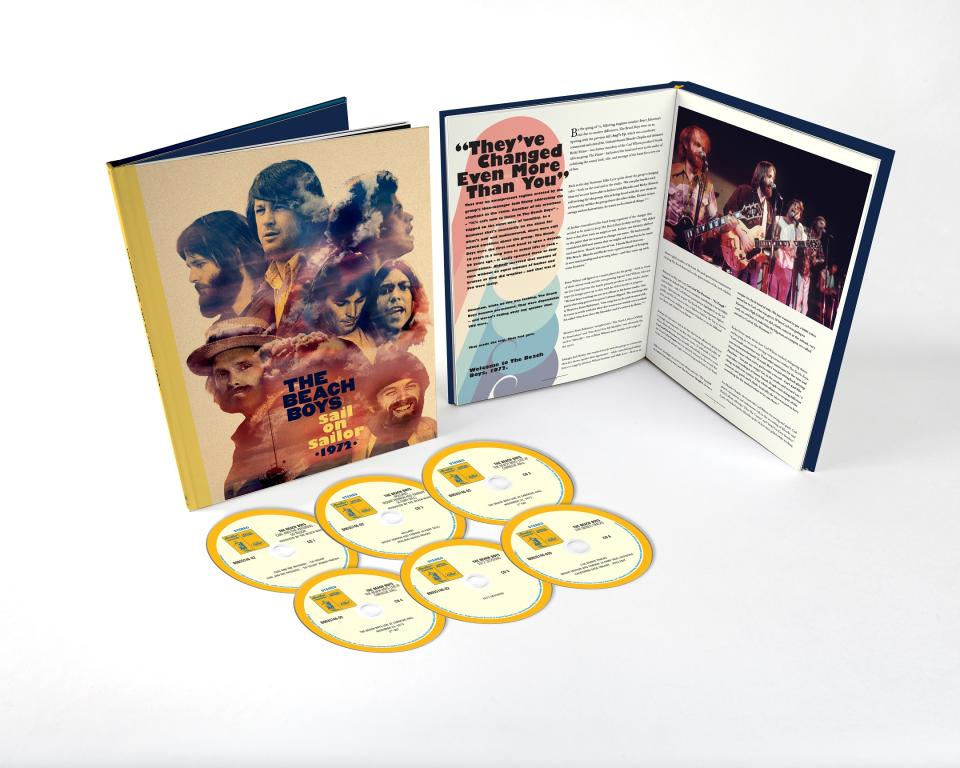
ALAN JARDINE
There was a really fertile period of years where all the personalities in the band came more to the forefront as Brian receded a little bit, and you and Mike and Carl were really getting to do a lot more stuff and the band was maturing. And you had a manager at this time, Jack Reilly, who really was wanting to make the band seem more of its time, in the early ‘70s.
Yeah. We’ve outlived a lot of managers, too, with different ideas of who we were or who we could become. On this one, we had a manager/writer who worked with Carl, principally, and I think really helped Carl grow as a songwriter-musician. Really, I think a lot of people rediscovered or are rediscovering us through some of Carl’s songwriting, and some of my input as well, during that period. We moved the whole kit-and-caboodle over to Holland as a result of that management decision, and we had one of our best albums, I think, at least from a writing, compositional point of view.
Prior to that, “Carl and the Passions” was another example of booming creativity, when we brought a group over from South Africa called the Flame, and they contributed musically and sonically and lyrically to that album. So there was a lot going on. But unfortunately, we didn’t position ourselves too well as a recording group by calling ourselves “Carl and the Passions.” That took a little explaining, but I don’t know if the point ever got across that that was just a humorous (thing)… that was just like an anecdote that ended up being the title of that particular album. Probably nobody knew who the hell we were! [Laughs.]
I was impressed particularly with us writing some songs about more — shall I say — thoughtful and peaceful things, like from the meditation movement, because Mike and I had embraced TM at the time. And so there were a couple of things that I came up with, really from the old Indian, Hindu scriptures. One is called “All This is That,” which is a chant that I learned from Maharishi, and Mike helped me lyrically on that. So stuff like that was happening — we were a lot more introspective.
As you say, people might have been a bit confused because “Carl and the Passions” led people to think that would be a more nostalgic album — which applied to “Marcella,” but basically you were doing almost the opposite of that with more spiritual songs like “He Come Down” as well as “All This Is That.”
“He Come Down” was a great one. Another one of those (perfect) for the singers from the Flame; Blondie Chaplin sang that wonderful chant. … Ricky Fataar and Blondie were our backing band for “Holland” as well, so they were instrumental in making both albums. Ricky is one of the greatdrummers of our time, I think. Nobody could play a snare drum like Ricky Fataar.
Even in Holland, you ended up doing music about California.
By the end of the time we were over there in Holland, we were so homesick, my song “The California Saga Trilogy” kind of harkened back to our roots, actually. We were very cognizant of that. It was time to go home. One of the last vocals Brian did on the album is on the “California Saga” suite. He walked into the studio and marched over to the microphone in the middle of the mixdown — which is kind of unusual, because when you’re mixing down, you usually don’t record. You’re through recording! Brian walks in and goes, [sings] “On my way to sunny Californ-I-A.” It was cool and kind of lifted us all up, because we were on our way back home. That stands out as something I remember, because we’d done our thing, for so many months there; we were ready to go home.
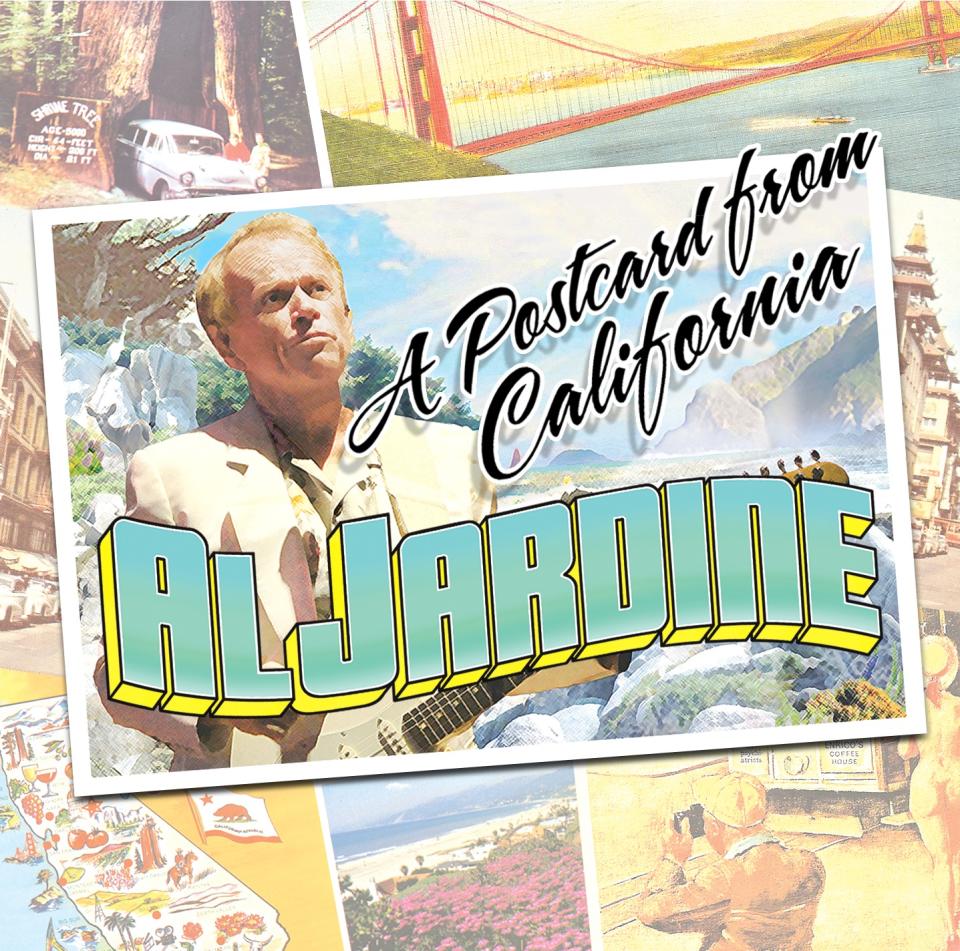
You have just released on CD a new version of your [formerly digital-only] solo album, “A Postcard from California,” with newly added tracks and remixes. It includes some songs that nearly count as Beach Boys tracks.
There’s material on my album that was originally supposed to be band material, which I was able to finish and produce with the fellas on it, from that period that we’re talking about. I rescued this one tune called “Don’t Fight the Sea,” and all the guys sang on it, and it just for some reason didn’t ever materialize, because it’s pretty serious, heady stuff, you know? I mean, the Beach Boys aren’t known for their thoughtful thinking about pollution and stuff like that. [Laughs.] So probably just thematically it wasn’t right for the Beach Boys, but it worked for me beautifully. And I encourage people to listen to the guys singing about something really important, especially now. … It’s unfortunately coming true — the polar bears are looking for places to sleep now.
How far back does “Don’t Fight the Sea” date?
The ‘70s. I just kept my original lead on it too. I couldn’t do a better job on the lead if I tried, so I just thought, no, I’m not gonna mess with this. And I got Brian, Mike, Carl and Bruce on the choruses. … On this album there’s a bonus track I remixed quite a bit, and the new version is pretty good. It’s called “Waves of Love,” another one that should have/could have, but due to all the complexities of being in a band of ourlongevity, there’s just not enough room for stuff, so you just have to find an outlet for it. But “Waves of Love” is really a Beach Boys song all the way through. And in fact, Carl Wilson sings one of his last leads on that, come to think of it, on “Waves of Love.” I’m very proud of that one. He was very generous with his time and helping each of his brothers and myself finish a song, and Carl was right there for me singing this beautiful bridge on “Don’t Fight the Sea,” as well.
Having finished touring with Brian Wilson early this year, you are back out on the road in December with your Endless Summer band, right?
Yeah, I’ll be out there in the snow drifts, bringing hopefully some joy to a few people, at places like Nashville’s City Winery. I’m back doing the low-key kind of tours where you get to meet people, which is a lot more fun than playing in a giant stadium, or the big shows that we do with Brian, where you don’t even hardly see the people. I like doing the real personal things where you can see the joy on their faces. I call it the Endless Summer Band, because… I don’t know why. Well, I guess it’s because I happened to trademark the name! [Laughs.] That would be a good reason. But I mean, hopefully we don’t have an endless summer. At the time, it seemed charming. It’s funny how with time, meanings change.
BLONDIE CHAPLIN
Beach Boys fans are really interested in hearing the Carnegie Hall recordings that have sat in the vault for the last 50 years. Do you have any memories of playing Carnegie Hall?
Yeah, I remember. I think that was a show where I did “Leaving This Town” for the first time, and I was as nervous as crap to do it. You can hear me breathing hard, being nervous. But it was a really good gig. At that time, the Beach Boys had been playing kind of nonstop, three weeks on, one week off, doing a lot of colleges, building it up, and then Nassau Coliseum and Carnegie Hall. And that gig was a real special gig because it was pretty rocking. The fans gave us some good confidence. It was different for them because it was different music compared to what all the other Beach Boy stuff used to be, but they seemed to embrace it pretty good.
Jack Rieley, the manager at that time, was really one of those forces who wanted to make the group more contemporary and relevant to the early ‘70s.
Yeah, he just figured they could kick into maybe a slightly rockier or harder… not harder, but I mean, this more energetic, rocking thing, getting away from the beach and the surf kind of stuff — although that would always be a part of it. Reiley just thought they needed a new direction, and I think Carl as well thought so. The other guys, you’d have to ask them, but I know those two were gung-ho in trying something different, and here are two young African guys that fit the bill. [Laughs.] Ricky had joined the band before me, and I was still in South Africa at the time — I think it was early ’72 — when I got a call from Reiley to come and get involved and then joined up with them in Europe. God, I wish he was around. Because he put a lot of things into perspective with what he was thinking and feeling. He had a lot to do with it, and I think Carl did too. And those are the guys that are not here.
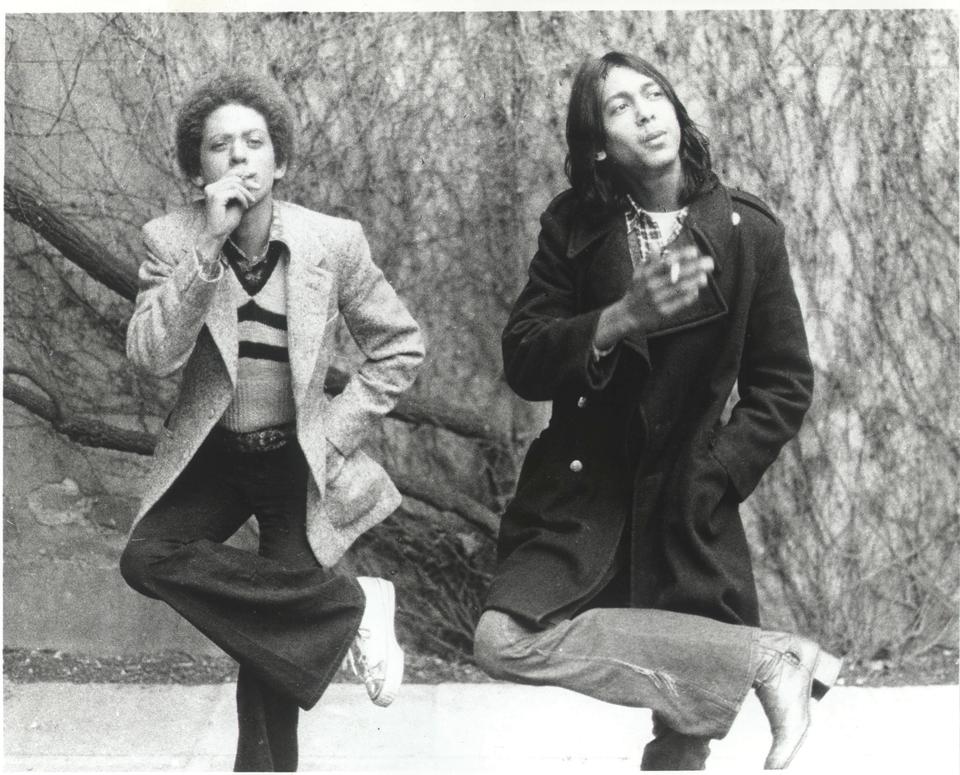
“Sail on Sailor,” which you famously sang lead on, was such an outlier for the group. Actually, some of us of a certan age during that period got into the Beach Boys through that song, because it was such an FM-friendly, uncharacteristic track for the group, and then we went back into the earlier stuff, as opposed to the people who’d grown up with the band.
Yeah, I think that that happened a lot. It was so different. Just about everyone has heard, somewhere, that song. But at the time when it came out, it was no hit or anything. It was a “turntable hit,” as they used to call it in those days. It wasn’t even selling that many. But that song seemed to just kind of keep sailing — no pun intended — and keep going. And now, 50 years later, I’m going, oh, shit, that has some legs. But if you’d asked me at the time we were doing it, I would go, boy, I don’t know if this will (be around) 50 years later. But hey, I’m glad it did, because if that song wasn’t on the album, we wouldn’t even be talking.
It got on FM radio more than top 40, which was an interesting turnaround. As far as who sang it, we know that other people tried it before you did. Were you kind of surprised that a song that had its origins with Brian and had that much commercial potential, suddenly, it’s like, “No, let’s get Blondie to sing it”?
Well, the thing is, Dennis was there, and he was just preoccupied. He gave it a shot, but he was ready to go and check out his new board that was sitting in the back of his truck. That was where he was at. He was like, “OK, Carl, I gave it a shot. The surf’s up — I’m going.”That’s exactly what was happening. So he said to brother Carl, “You’re a better singer. You give it a shot.” So Carl tried it a couple times. He didn’t like the timbre of his voice. So there was only one other person in the whole room. And I had a feeling Carl would’ve liked me to have sang it anyway. So it landed in my lap and I sang it twice. I did it a couple of times and that’s what you hear.
It was a fun little track to do. It was just Carl on the electric piano initially; I played bass, and Ricky played drums and then sang something. It’s like a softer blues shuffle. If I go to a market or somewhere where it’s playing in the speaker, I stop and go, “OK, he’s not bothering me after all these years. He sounded OK then, and he sounds OK now.” And then you just keep going.
Your time in the band gets talked about a lot, for being such a short one. And then “Holland” there was almost a three-year gap between Beach Boys albums, and by “15 Big Ones” you and Ricky were gone and they’d shifted in a different direction, toward more of a nostalgic feel again. How did you feel about the the end of your tenure with the band?
Well, I look it as a short escapade, but there seemed to be quite a bit of music in there. The way it ended was a bit of a drag. Because I got into a bit of an argument with Steve Love, Mike Love’s brother, and that wasn’t any fun. And I think that’s what you are asking me, because that’s how it ended. There was a skirmish, so to speak, and people landed me a few blows, and I just said, “Screw it.” So however you can condense that so it doesn’t swallow the whole beautiful part of the music would be great. [Laughs.]
But it’s weird. There’s “Carl and the Passions.” There’s the “Holland” album, and then there’s “The Beach Boys Live.” That was in not even three years — like two and a half or something. I’m so amazed that people talk about it now. (“Sail on Sailor”) has got legs and it’s kind of gotten into the American psyche.I remember hearing it in, what was that movie with Scorsese and Jack Nicholson… (“The Departed.”) It’s in the background of one of those scenes, and when I was sitting and watching the movie, I go, oh man, that’s funny. So it stands up and I’m happy that people dig it. After all this time, it’s a pleasure to be thought of as a good thing in that era of the Beach Boys’ music.
Are there any other highlights you remember from the studio?
Well, I loved the “California Saga” stuff — that was a lot of fun doing vocals on that with Mike and Al and the whole band. I remember fondly “Funky Pretty,” which was a lot of fun when we did that in Holland. Because in the makeshift studio in Holland, it was all just a bunch of (equipment that had) just been flown from America and assembled over there and you’d trip over wires every which way. The train would come by and it would rumble the studio. We’d have to stop recording and then you’d start again. It was just so unusual to go bring all the equipment and start somewhere and do something in a barn — an adventure. I was, what? I was 21. I think Ricky was 20.
I’m still fond of going to Holland. Up until this pandemic, I was going there once a year, hanging out. I love going there and sitting on the boat, just going down the canal. It’s really mellow, and that’s what I liked about doing the “Holland” album. It was mellow to be there, and that’s a mellow place, so I had a lot of fun doing it.
So it had a lasting effect for you, in that it’s become a lifelong destination?
Yeah, I have some good friends there, and whenever I go to Europe, I stop there first and get acclimated, so to speak. But the barn where we recorded is not there anymore. I went there for a photo shoot with some people some years ago and went, “OK, that’s gone.” But one of the guys that runs the corner store who lives there was painting his fence, after 40-some odd years, still painting the fence the way he painted the fence back then, bent over in a certain way. And I’m going: God, could he be the same guy? Sure enough, it was the same guy! And I said, “Do you remember some of these people down here in the barn, making music?” He said, “Yeah, these American guys came and put in all this equipment and made a noise. They had a racket for three months, then they were gone.” It cracked me up.
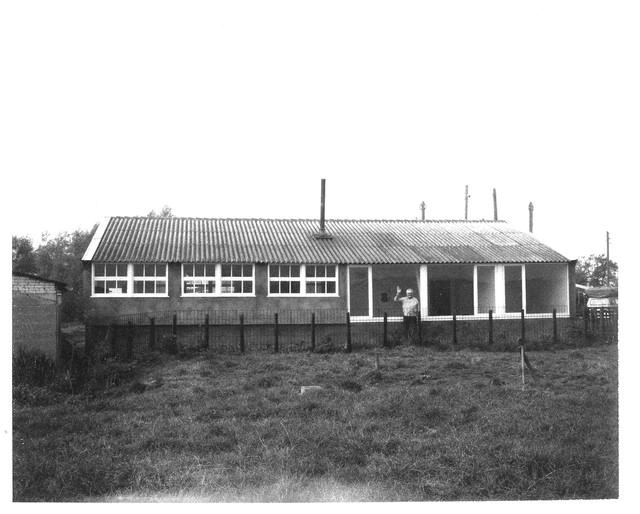
It’s easy to see how it must feel strange to talk about something you were only a part of for a couple of years, 50 years ago. And yet you have toured with Brian and his band in recent years, so in that sense it has to seem not such a completely foreign experience.
You know, Carl disappeared, and Dennis, and things do change. So I’m glad that this thing has come out the way it has, because it’s good to show what was happening with the band then, to show it was a good time creatively. Whatever happened later, it’s got nothing to do with me, because I wasn’t involved. … But with Brian… He flew over (for “Holland”), and that was something else, because he never did like to fly. So they got him there and it was a pleasure. Especially on “Funky Pretty” — it was a pleasure working with him on that. That one comes to mind a lot, with him.
And then working with him the last six, seven years, that’s been a gas, too. We get along. Because we were close for that one little time, Dennis, Carl and Brian, and he knew about the Flame and everything like that, there was like a mutual respect. I think I remind him of his brothers, with that connection, you know?
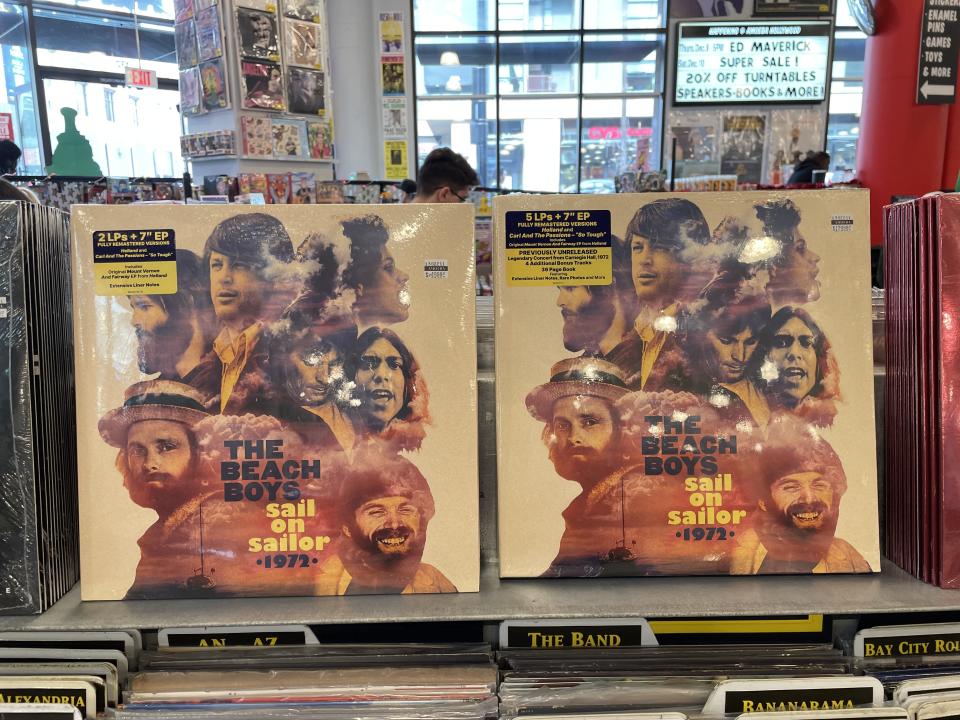
Best of Variety
Sign up for Variety’s Newsletter. For the latest news, follow us on Facebook, Twitter, and Instagram.

